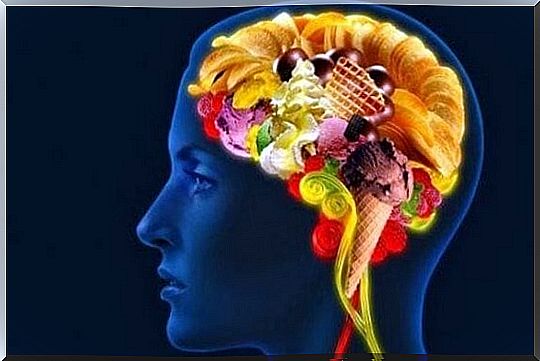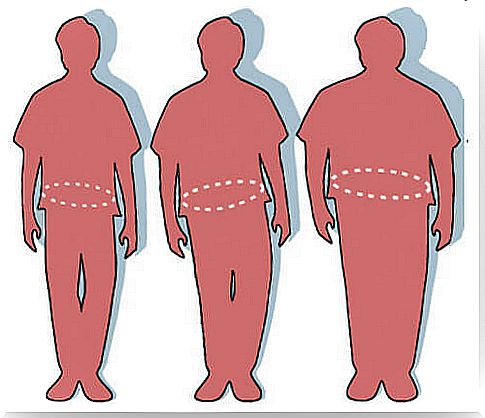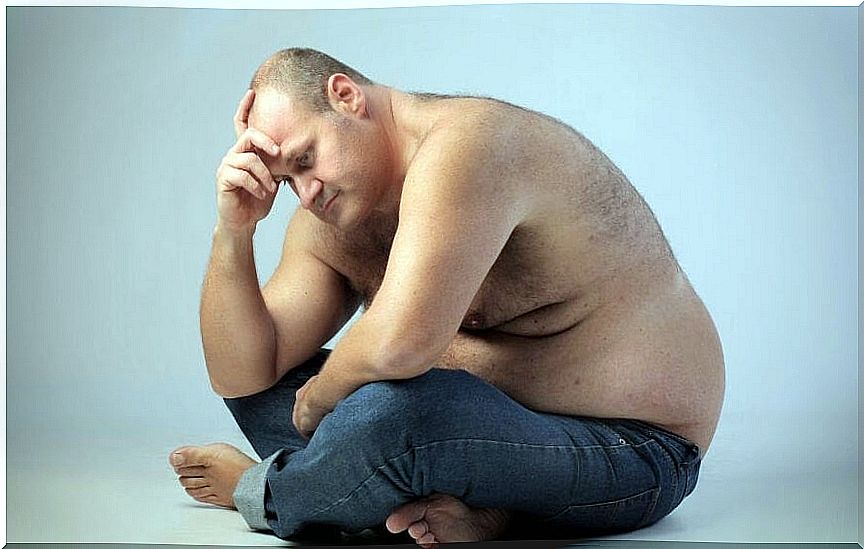What Is The Relationship Between Emotions And Being Overweight?

Being overweight is one of the great headaches in the contemporary world. So far science has not been able to explain 100% what are the microbiological processes that lead to obesity. It is known that there are multiple factors that produce it, but there are aspects that are still an enigma.
What is certain is that cases of overweight have increased throughout the world. The World Health Organization speaks of an epidemic, especially in countries such as the United States, the United Kingdom, Mexico or China, where the number of obese people has doubled and sometimes tripled.
This situation has also led to myths and prejudices surrounding being overweight. A whole symbolic universe has been built around obesity. It is associated with carelessness, when this is not true in many cases. There are people who starve themselves and still do not lose weight. It is also associated with the ugly and undesirable. This makes the subject also have a strong psychological load.
A few decades ago, the influence of emotions on being overweight began to be studied. Low calorie diets and consistent exercise are sometimes not enough to achieve optimal results. This has led us to think that there are associated factors that are of the unconscious order.
Weight and being overweight
From a strictly anatomical point of view, the accumulation of fat in the body does not always lead to overweight. By increasing the amount of fat, you increase the weight. That is clear. What is not so clear is whether this increase in adiposity is reflected in the overall weight of a person. Often, as fat increases, muscle mass decreases.

This means that the number of kilograms that someone has does not necessarily reflect the amount of fat that is accumulated. And losing weight is not synonymous with looking slim. Finally, what worries many is not the weight of your body, but the shape of your body.
The accumulated fat in certain areas becomes visible and undesirable, because there is a model of the ideal silhouette. Someone with waist “floaters” or a prominent abdomen may weigh the same as someone who is leaner, but with more muscle mass. Overall, the weight itself is not the problem. What affects many people psychologically is the contrast between their silhouette and the ideal of the silhouette.
Unconscious factors in being overweight
According to Dr. Luis Chiozza , there is scientific evidence that some people tend to accumulate fat with a certain “ease”. Their bodies also have a special resistance to mobilize accumulated fat. To establish why this phenomenon occurs, the Argentine doctor refers to the essential function of adipose tissue: to serve as a calorie reserve or energy reserve.

This author indicates that there are unconscious phantasies associated with the storage and retention of fat in the body. He points out that, in principle, the accumulation of adipose tissue is an adaptive response to the possibility of times of shortage. It is reserved so that the fault can be made up when it occurs. Migratory birds increase the amount of fat in their bodies before their strenuous trips.
In the human being, the body accumulates fat from a long-term reserve fantasy. This fantasy, in turn, is related to another fantasy of “self-sufficiency” : not needing anything or anyone outside of oneself, to guarantee the continuity of life. Finally, the change in the shape of the body corresponds to a third fantasy: that of getting out of shape. In other words, out of the norm. In this case, in the ideal way.
Dr. Chiozza concludes that being overweight could be a form of defense when there is an unconscious conflict related to a feeling of incapacity. The accumulated fat is a way of reserving oneself for an action that is not finally undertaken for fear of not being able to carry it out. The increase in corpulence would be a kind of compensation for that feeling of helplessness. Ultimately, an unconscious feeling of inadequacy is not tolerated and conflict is masked by being overweight.
In one way or another, it is necessary to differentiate the physical risk that for some people being overweight can suppose from the psychological discomfort that not responding to the beauty canon that prevails in our society can generate. The truth is that normally the two circumstances coexist, hence a good evaluation is important. In this sense, the motivation of the patient to look better can be used to follow certain exercise and diet guidelines, which together with metabolism are the main regulators of weight.









